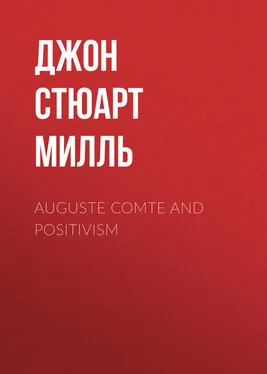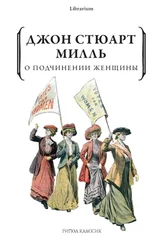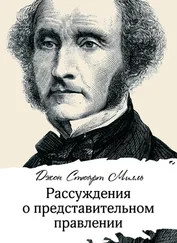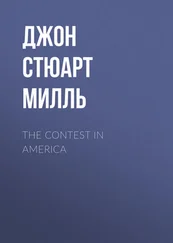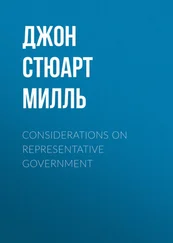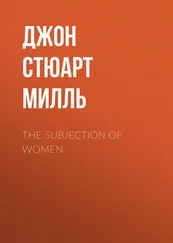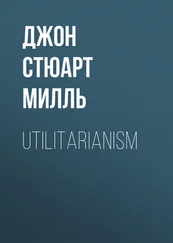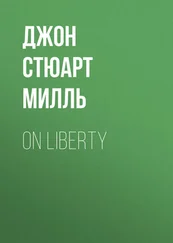Джон Милль - Auguste Comte and Positivism
Здесь есть возможность читать онлайн «Джон Милль - Auguste Comte and Positivism» — ознакомительный отрывок электронной книги совершенно бесплатно, а после прочтения отрывка купить полную версию. В некоторых случаях можно слушать аудио, скачать через торрент в формате fb2 и присутствует краткое содержание. Жанр: Философия, literature_19, foreign_antique, foreign_prose, на английском языке. Описание произведения, (предисловие) а так же отзывы посетителей доступны на портале библиотеки ЛибКат.
- Название:Auguste Comte and Positivism
- Автор:
- Жанр:
- Год:неизвестен
- ISBN:нет данных
- Рейтинг книги:4 / 5. Голосов: 1
-
Избранное:Добавить в избранное
- Отзывы:
-
Ваша оценка:
- 80
- 1
- 2
- 3
- 4
- 5
Auguste Comte and Positivism: краткое содержание, описание и аннотация
Предлагаем к чтению аннотацию, описание, краткое содержание или предисловие (зависит от того, что написал сам автор книги «Auguste Comte and Positivism»). Если вы не нашли необходимую информацию о книге — напишите в комментариях, мы постараемся отыскать её.
Auguste Comte and Positivism — читать онлайн ознакомительный отрывок
Ниже представлен текст книги, разбитый по страницам. Система сохранения места последней прочитанной страницы, позволяет с удобством читать онлайн бесплатно книгу «Auguste Comte and Positivism», без необходимости каждый раз заново искать на чём Вы остановились. Поставьте закладку, и сможете в любой момент перейти на страницу, на которой закончили чтение.
Интервал:
Закладка:
The primitive tendency or instinct of mankind is to assimilate all the agencies which they perceive in Nature, to the only one of which they are directly conscious, their own voluntary activity. Every object which seems to originate power, that is, to act without being first visibly acted upon, to communicate motion without having first received it, they suppose to possess life, consciousness, will. This first rude conception of nature can scarcely, however, have been at any time extended to all phaenomena. The simplest observation, without which the preservation of life would have been impossible, must have pointed out many uniformities in nature, many objects which, under given circumstances, acted exactly like one another: and whenever this was observed, men's natural and untutored faculties led them to form the similar objects into a class, and to think of them together: of which it was a natural consequence to refer effects, which were exactly alike, to a single will, rather than to a number of wills precisely accordant. But this single will could not be the will of the objects themselves, since they were many: it must be the will of an invisible being, apart from the objects, and ruling them from an unknown distance. This is Polytheism. We are not aware that in any tribe of savages or negroes who have been observed, Fetichism has been found totally unmixed with Polytheism, and it is probable that the two coexisted from the earliest period at which the human mind was capable of forming objects into classes. Fetichism proper gradually becomes limited to objects possessing a marked individuality. A particular mountain or river is worshipped bodily (as it is even now by the Hindoos and the South Sea Islanders) as a divinity in itself, not the mere residence of one, long after invisible gods have been imagined as rulers of all the great classes of phaenomena, even intellectual and moral, as war, love, wisdom, beauty, &c. The worship of the earth (Tellus or Pales) and of the various heavenly bodies, was prolonged into the heart of Polytheism. Every scholar knows, though littérateurs and men of the world do not, that in the full vigour of the Greek religion, the Sun and Moon, not a god and goddess thereof, were sacrificed to as deities – older deities than Zeus and his descendants, belonging to the earlier dynasty of the Titans (which was the mythical version of the fact that their worship was older), and these deities had a distinct set of fables or legends connected with them. The father of Phaëthon and the lover of Endymion were not Apollo and Diana, whose identification with the Sungod and the Moongoddess was a late invention. Astrolatry, which, as M. Comte observes, is the last form of Fetichism, survived the other forms, partly because its objects, being inaccessible, were not so soon discovered to be in themselves inanimate, and partly because of the persistent spontaneousness of their apparent motions.
As far as Fetichism reached, and as long as it lasted, there was no abstraction, or classification of objects, and no room consequently for the metaphysical mode of thought. But as soon as the voluntary agent, whose will governed the phaenomenon, ceased to be the physical object itself, and was removed to an invisible position, from which he or she superintended an entire class of natural agencies, it began to seem impossible that this being should exert his powerful activity from a distance, unless through the medium of something present on the spot. Through the same Natural Prejudice which made Newton unable to conceive the possibility of his own law of gravitation without a subtle ether filling up the intervening space, and through which the attraction could be communicated – from this same natural infirmity of the human mind, it seemed indispensable that the god, at a distance from the object, must act through something residing in it, which was the immediate agent, the god having imparted to the intermediate something the power whereby it influenced and directed the object. When mankind felt a need for naming these imaginary entities, they called them the nature of the object, or its essence , or virtues residing in it, or by many other different names. These metaphysical conceptions were regarded as intensely real, and at first as mere instruments in the hands of the appropriate deities. But the habit being acquired of ascribing not only substantive existence, but real and efficacious agency, to the abstract entities, the consequence was that when belief in the deities declined and faded away, the entities were left standing, and a semblance of explanation of phaenomena, equal to what existed before, was furnished by the entities alone, without referring them to any volitions. When things had reached this point, the metaphysical mode of thought, had completely substituted itself for the theological.
Thus did the different successive states of the human intellect, even at an early stage of its progress, overlap one another, the Fetichistic, the Polytheistic, and the Metaphysical modes of thought coexisting even in the same minds, while the belief in invariable laws, which constitutes the Positive mode of thought, was slowly winning its way beneath them all, as observation and experience disclosed in one class of phaenomena after another the laws to which they are really subject. It was this growth of positive knowledge which principally determined the next transition in the theological conception of the universe, from Polytheism to Monotheism.
It cannot be doubted that this transition took place very tardily. The conception of a unity in Nature, which would admit of attributing it to a single will, is far from being natural to man, and only finds admittance after a long period of discipline and preparation, the obvious appearances all pointing to the idea of a government by many conflicting principles. We know how high a degree both of material civilization and of moral and intellectual development preceded the conversion of the leading populations of the world to the belief in one God. The superficial observations by which Christian travellers have persuaded themselves that they found their own Monotheistic belief in some tribes of savages, have always been contradicted by more accurate knowledge: those who have read, for instance, Mr Kohl's Kitchigami, know what to think of the Great Spirit of the American Indians, who belongs to a well-defined system of Polytheism, interspersed with large remains of an original Fetichism. We have no wish to dispute the matter with those who believe that Monotheism was the primitive religion, transmitted to our race from its first parents in uninterrupted tradition. By their own acknowledgment, the tradition was lost by all the nations of the world except a small and peculiar people, in whom it was miraculously kept alive, but who were themselves continually lapsing from it, and in all the earlier parts of their history did not hold it at all in its full meaning, but admitted the real existence of other gods, though believing their own to be the most powerful, and to be the Creator of the world. A greater proof of the unnaturalness of Monotheism to the human mind before a certain period in its development, could not well be required. The highest form of Monotheism, Christianity, has persisted to the present time in giving partial satisfaction to the mental dispositions that lead to Polytheism, by admitting into its theology the thoroughly polytheistic conception of a devil. When Monotheism, after many centuries, made its way to the Greeks and Romans from the small corner of the world where it existed, we know how the notion of daemons facilitated its reception, by making it unnecessary for Christians to deny the existence of the gods previously believed in, it being sufficient to place them under the absolute power of the new God, as the gods of Olympus were already under that of Zeus, and as the local deities of all the subjugated nations had been subordinated by conquest to the divine patrons of the Roman State.
Читать дальшеИнтервал:
Закладка:
Похожие книги на «Auguste Comte and Positivism»
Представляем Вашему вниманию похожие книги на «Auguste Comte and Positivism» списком для выбора. Мы отобрали схожую по названию и смыслу литературу в надежде предоставить читателям больше вариантов отыскать новые, интересные, ещё непрочитанные произведения.
Обсуждение, отзывы о книге «Auguste Comte and Positivism» и просто собственные мнения читателей. Оставьте ваши комментарии, напишите, что Вы думаете о произведении, его смысле или главных героях. Укажите что конкретно понравилось, а что нет, и почему Вы так считаете.
